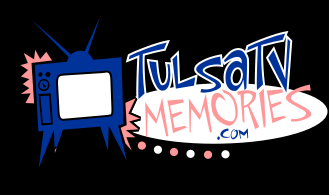
A rhetorical question of considerable gravity is asked in the new film, "Sunshine." With doomsday at hand, do humans have the right to technologically obviate their own extinction even if God has willed it? It's about a half century into the future. Earth is in a deep and darkening winter. Unscientifically, the sun is burning out. A crew has been launched into space. The mission is to plant and detonate a large thermonuclear device within the sun to regenerate its life-giving process that provides light and warmth for our solar system and planet. "Sunshine's" question is interesting, but it's only proffered near the end of the film and used as a device for part of the orgasmic finish. Most of the rest of the movie is a fast-paced series of space alerts and emergencies which the dedicated crew of men and women react to in a manner that would make anyone proud. Values about life and death emerge among these dire events which, if you hurry and really focus, can be given some consideration. (There is a lot of quiet time during Kubrick's "2001: A Space Odyssey.")
Icarus Two is the name of their craft. It has a gigantic heat shield that protects the ship from the blow torch-like rays of the star toward which it silently hurtles. Icarus One, on the initial mission seven years earlier to re-ignite the dimming sun, was lost. This is the last chance to keep Earth from becoming a big ball of ice. And at this point, thanks must be paid to the Greeks for giving names to mythological figures which make it possible for film writers to be ironic, if not darkly prophetic. Bells and whistles incorporated by British director Danny Boyle for the technologically heavy narrative are impressive, since the budget for "Sunshine" didn't measure up to blockbuster size. Boyle ("28 Days Later" 2002, "Trainspotting" 1996, "Shallow Grave" 1994) teams again with film writer and novelist Alex Garland for "Sunshine." It was shot in the UK, except for the final scene which shows an Australian edifice in the background. Without an intended pun, no big star appears in "Sunshine," although most of the cast is quite good in a strong ensemble delivery. Because of so many unfamiliar faces, darkened sets, or blurred images, confusion might well impede your comprehension of who is doing what or what is being done to whom. The action, however, must proceed at Warp Speed as energy levels are cranked to the max. Mentioned above is the classic space film, Stanley Kubrick’s "2001: A Space Odyssey." "Sunshine" owes much to this gem that was a cross-pollination of the novel by Sir Arthur C. Clarke and his collaboration with director Kubrick on the 1968 film. The novel was also published the same year. It’s important, however, to inform Douglas Rain fans out there in deep space that Mr. Rain is not heard in "Sunshine." The voice of Icarus Two is that of Chipo Chung. Although I’ve always been awed by HAL's dulcet, calming tones, Ms. Chung also pleases as the almost omniscient voice of Icarus Two's master computer. I will say here that the cybergenius of Icarus Two is not lobotomized as was the HAL 9000 of the late 60s.
Unfortunately, Danny Boyle's update of "2001" is less of a metaphysical statement than it seems to be a well-made, but overblown pilot for television. Elements of exposition and characterization are lacking and clarity is not the film's long suit. This is not because of unexplained mysteries that lie across the vast reaches of the universe, a la Sir Arthur, but more so because the script doesn't crisply establish what the hell's going on from scene to scene, or segue from one to the next in a coherent manner. Moreover, the faces of the actors are trying hard to say so much about the characters of each crew member, but the script takes us hardly, at all, to quiet, private moments of anyone aboard Icarus Two. It's difficult to believe that among these young, bright, attractive people, locked on board a rocket ship for so long, that some haven't had some kind of sexual diversion away from the grind of saving the sun for all of mankind. The "should man/woman intervene to save his/her own neck even if God has ordained the guillotine?" interrogative might have been employed more vigorously across the entire arc of "Sunshine." It's one of the current, larger questions that's seldom produced for your basic cable news/talk segment. Cinema is left to do it, so thanks go to Boyle and Garland.
Copyright © 2007, Gary Chew. All rights reserved. |